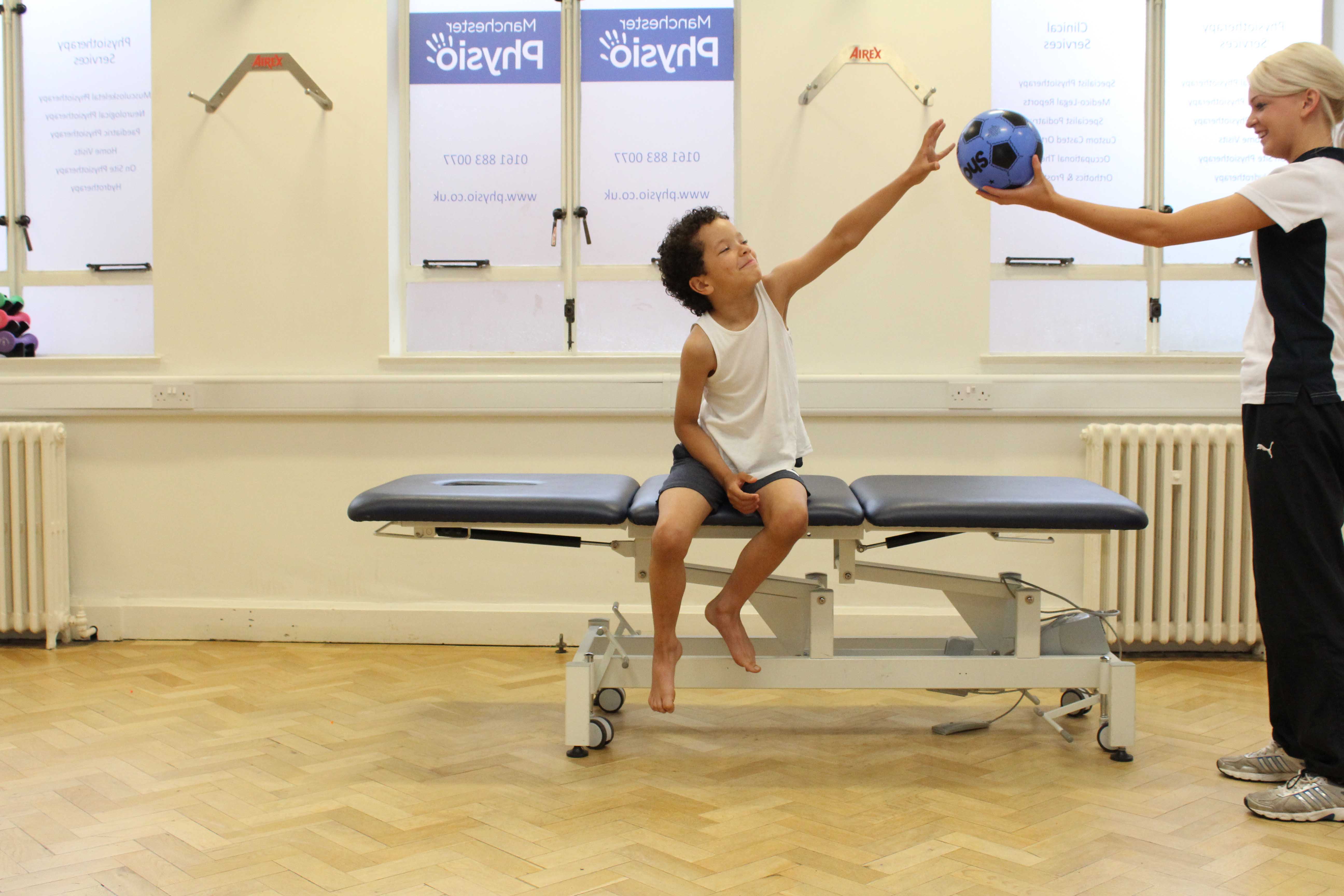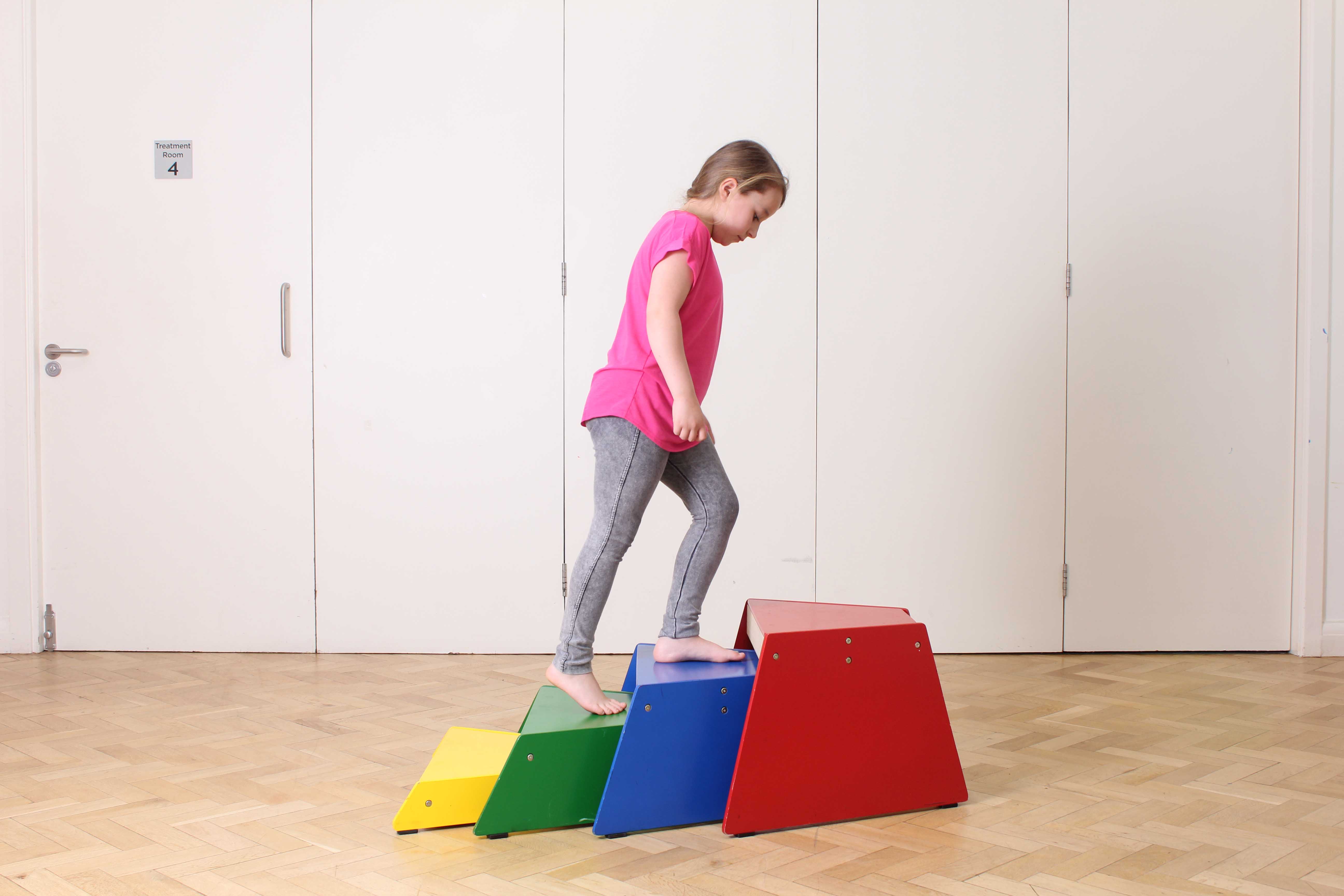What is encephalitis
Encephalitis is a condition which causes the brain tissue to become inflamed. The varied physical symptoms that encephalitis triggers can be improved through physiotherapy intervention. Strengthening exercises and stretches can be carried out by a specialist paediatric physiotherapist, to assist in improving your toddlers development rate. They will have an in-depth understanding into encephalitis pathophysiology.
 Above: Core stability and toning exercises supervised by a paediatric physiotherapist
Above: Core stability and toning exercises supervised by a paediatric physiotherapistCauses of encephalitis
The most common cause of encephalitis is viral infection. Viruses that are commonly linked to encephalitis in the UK include herpes simplex viruses and varicella zoster virus (responsible for shingles and chicken pox).It can also rarely be caused by bacteria or fungus. In over half of its cases, a cause has not yet been identified.
Symptoms of encephalitis
The initial symptoms of encephalitis are usually mild but have the ability to quickly become more serious. Following initial flu-like symptoms, more serious symptoms can develop, including:
- Confusion
- Seizures
- Changes in behaviours
- Lack of control of physical movements
- Hallucinations
- Inability to speak
- Stiff neck
- Sensation loss
 Above: Passive stretches and mobilisations to relieve pain and stiffness
Above: Passive stretches and mobilisations to relieve pain and stiffnessDiagnosis of encephalitis
Diagnosis of encephalitis can be difficult due to the symptoms being similar to other conditions such as meningitis. Your toddler may require to have a MRI or CT scan performed to allow the doctor to distinguish and diagnose encephalitis. Also, a lumbar puncture may be required in order to draw out spinal cord fluid for testing.
Treatment of encephalitis
Most toddlers with encephalitis will initially receive treatment on an intensive care unit in hospital. If a virus has been the cause of the encephalitis, anti-viral medication and fluids will be required.
When recovering from encephalitis, it may be apparent that your toddler may have some brain damage. Typically, problems such as stiff, tight joints and arm, leg and torso weakness are associated with brain damage. Your child may appear to have difficulty with speech and swallowing. Co-ordination and sensation, along with headaches, may also be a problem. Our specialist physiotherapists at Physio.co.uk will be able to help your child with the symptoms of brain damage, which encephalitis has caused.
Physiotherapy for my toddler after encephalitis
Following discharge from hospital when medically stable, following an episode o of encephalitis, it would be beneficial for your child to have a thorough physiotherapy assessment conducted in your home environment or in the clinic.
This will allow our Physiotherapists to discuss their findings with you and what main problems can be formulated to create specific goals for your child.
A treatment plan will be created dependent on your childs main problems and may include the following:
- Stretching techniques ? manual and passive to maintain range of movement and muscle length
- Crawling, standing and sitting positioning put into practice
- Social interactions and engagements through a variety of tasks
- Using play and activities to help with balance work
- Strengthening exercises
Your physiotherapist will be able to identify how your child may have been affected? by encephalitis and therefore teach you methods on how to minimise the symptoms of encephalitis at home, maximising your toddlers ability to grow and develop into a happy child.
Your child will be given a detailed exercise programme, documenting exercises and stretches to be completed with you on a daily basis. By participating in regular exercise, your childs balance and range of movement will be maintained and pain and stiff joints will also be lessened.
With their specialist knowledge of techniques, your physiotherapist with assess the suitability of your child for therapy techniques such as:
- Hydrotherapy
- Lycra Orthotics
- Aids/ equipment that will help to increase the rate of your childs development will be suggested if appropriate
- Improved alignment and posture
- Increased play participation
- Increase in muscle strength
- Increase in range of movement
- Improvements in co-ordination and sensation
Why choose Physio.co.uk for your toddler
Physio.co.uk can provide physiotherapy sessions in your home environment or in the clinic. The amount of treatment your child receives can be adapted to as much of as little physiotherapy required and what is most suitable and convenient for your family. Due to the wide range of experience your specialist physiotherapist has in the treatment and initial assessment of children with brain damage, you will receive a high standard of therapy, holistically focused on achieving what we believe to be the best possible outcome for your child.
- Home or in clinic treatment
- Experienced and caring Physiotherapists
- Occupational Therapy access
- Speech and Language therapy access
- Learn how to help your child recover through exercise
- No waiting lists

 0330 088 7800
0330 088 7800


































